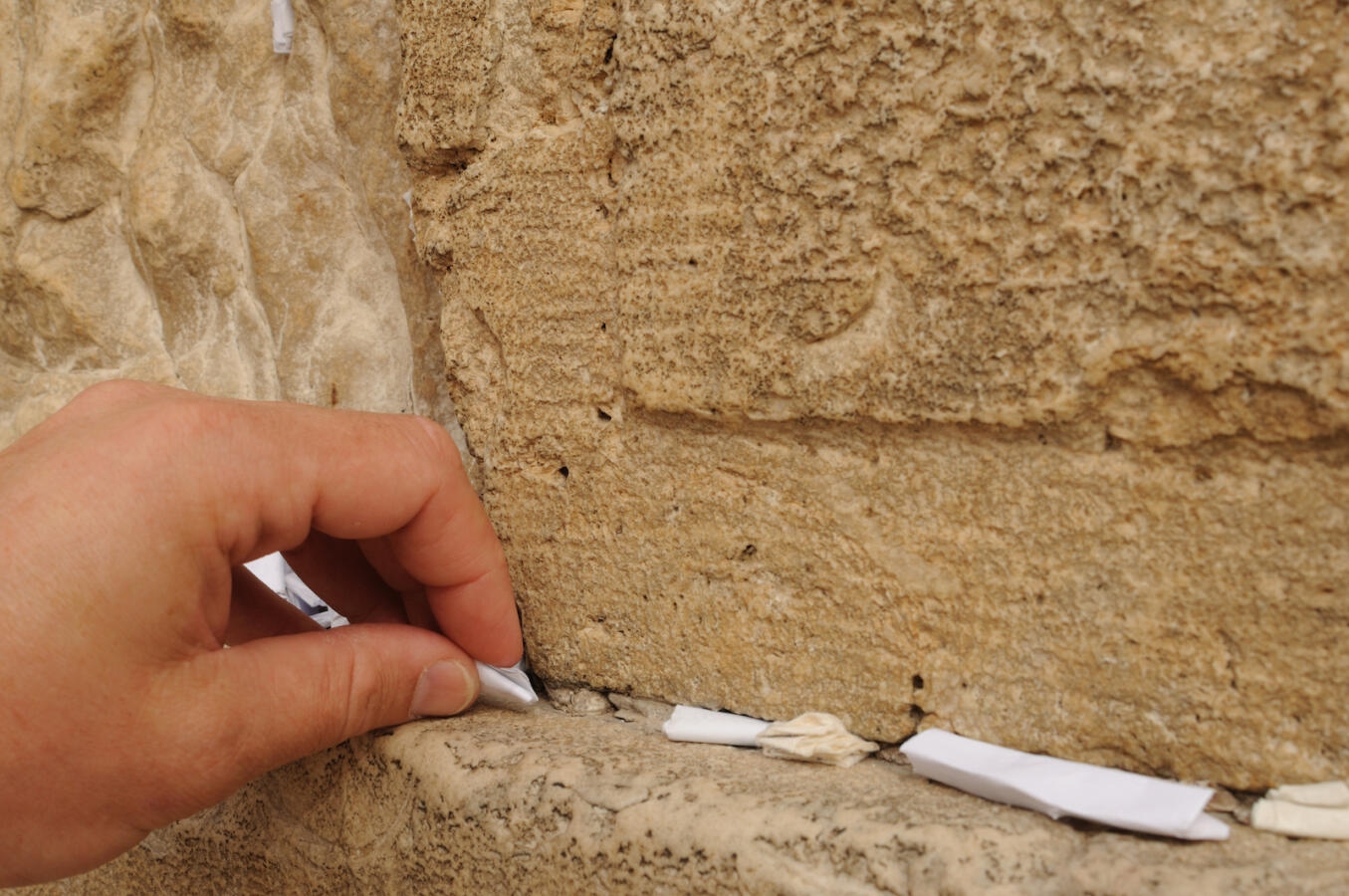For those of us who don’t regularly think in theological terms, the High Holiday liturgy can be jarring to read. Some of the messages are relatively easy to relate to, like the reminder of human frailty in Unetaneh Tokef (“Who will live and who will die?”) or the expression of remorse over our shortcomings in the confession litany (“We have sinned; we have been disloyal…”). But the traditional High Holiday prayer book also includes some far more abstruse ideas.
An obvious challenge is the centrality of animal sacrifice to the way the Day of Atonement was observed in the ancient Temple, a ritual we recount in detail during Yom Kippur. But the prayers also repeatedly invoke ideas about God that are far removed from our regular discourse.
Consider the repeated refrain of “And so, place your fear, O Lord our God, on all your creations.” Or this sequence describing God: “Who knows the inclination of all creations/ All believe that He creates them in the womb/ Who can do anything and unifies them together.” Reflecting on God’s exaltedness, pleading for mercy from a deity who knows our thoughts and holds the power of life and death over us — these are notions that are hard to grasp and difficult to come to terms with. How do we conceptualize and relate to God without recourse to a seminar in theology?
Even as it creates this challenge, the liturgy provides a solution by offering a range of different modes of relating to God. Nowhere is this clearer than in Ki Anu Amekha, a short poem (piyyut) recited multiple times on Yom Kippur to introduce the Viddui, the confessional prayer. It reads:

Help us keep Jewish knowledge accessible to millions of people around the world.
Your donation to My Jewish Learning fuels endless journeys of Jewish discovery. With your help, My Jewish Learning can continue to provide nonstop opportunities for learning, connection and growth.
For we are your people, and you are our God.
We are your children, and you are our Father.
We are your servants, and you are our Lord.
We are your congregation, and you are our Portion.
We are your heritage, and you are our Destiny.
We are your flock, and you are our Shepherd.
We are your vineyard, and you are our Keeper.
We are your work, and you are our Maker.
We are your dear ones, and you are our Beloved.
We are your treasure, and you are our God.
We are your people, and you are our King.
We are your chosen ones, and you are our Chosen One.
This piyyut presents a list of relational pairs that characterize the relationship between Israel and God in various ways, all of which draw on comparisons to non-Divine relationships. It appears to be an expansion of a midrash on Song of Songs 2:16 that proposed several of these relational pairs, justifying each with a biblical verse. It is followed in the High Holiday prayer book by an additional stanza that relates more directly to themes of sin and forgiveness that are the leitmotif of the Day of Atonement, contrasting the human penchant for sin with God’s compassion and mercy. Less clear is the function of the section cited above. In what way does delineating this litany of relationships serve as a fitting introduction to a confession ritual?
I would argue that the purpose of listing these various relationships is to invite each of us to find ourselves in the poem as we stand before God and request atonement. People are complex and multi-faceted, and the way we relate to an infinite God is bound to be even more varied and intricate. Some people may relate best to God as a father who loves his children even as he disciplines them. Others may connect better to a political metaphor, seeing God as the king exercising dominion over his nation. Some of us experience God more intimately, as a shepherd tending the flock or a vintner caring for grape vines. Others see the relationship between Israel and God as one of passionate love as described in the Song of Songs. And some may see God primarily through the history of the Jewish people, as having chosen Israel for a particular divine destiny.
Each line of this piyyut depicts a particular quality of relationship between God and Israel, but none of them exhausts it. God simultaneously inhabits all of these modes of relation depending on the person, the point in time and the broader context in which the relationship manifests itself.
The poem, and the High Holy Days liturgy overall, represents God in these various ways not because everyone in synagogue is expected to develop a complex theology that can encompass them all, but because we can all likely connect to at least one mode of relating to God in our prayers. As each of us focuses on and resonates with a particular aspect of the God-Israel relationship, our collective recitation of Ki Anu Amekha serves to express the rich and varied tapestry of God. And hopefully our Father, our King, our Shepherd, our Lover, our Destiny will see fit to grant Israel forgiveness and make 5784 a year filled with blessings.
This article initially appeared in My Jewish Learning’s Shabbat newsletter Recharge on Sep. 23, 2023. To sign up to receive Recharge each week in your inbox, click here.



